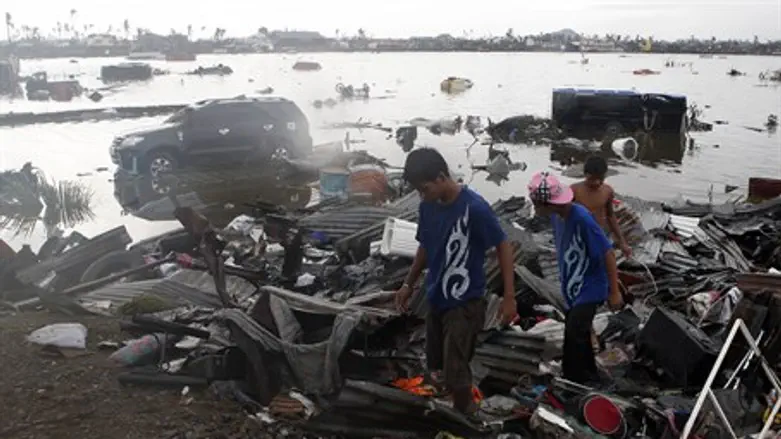
Despite an outpouring of international aid, many victims of Typhoon Haiyan in the Philippines are still waiting for help.
Damaged roads and downed communications mean that while food, water and medicine have been delivered to affected cities, the much-needed supplies have not been distributed to those at risk.
An Associated Press reporter who toured the city of Tacloban saw no evidence of food or water distribution on Tuesday. CBS news quoted an elderly resident of the city who said she and those with her had not eaten for more than a day.
“There is a huge among that we need to do. We have not been able to get into the remote communities. Even in Tacloban, because of the debris and difficulties with logistics and so on, we have not been able to get in the level of supply that we would want to,” said United Nations humanitarian chief Valerie Amos.
The UN has issued an appeal for another $301 million in aid. Roughly 670,000 people were displaced by the killer storm and an estimated 11 million need assistance, UN officials said.
Philippines President Benigno Aquino offered a surprise on Tuesday when he told CNN that while the situation remains serious, the death toll from Friday’s typhoon is probably much lower than originally thought. While aid groups originally estimated the death toll at 10,000, Aquino said he believes the true death toll is closer to 2,000.
Israel is among the countries that have sent assistance to the Philippines. Rescuers from the IDF’s Home Front Command flew out to the affected area on Sunday, and the American Jewish JDC and IsraAid are also planning responses.
